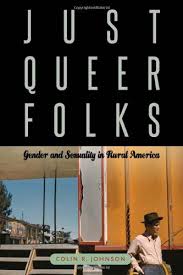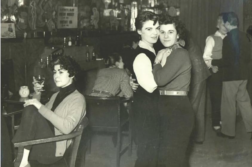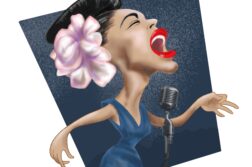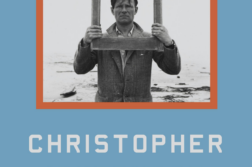 Just Queer Folks: Gender and
Just Queer Folks: Gender and
Sexuality in Rural America
by Colin R. Johnson
Temple University Press. 264 pages, $32.95
IN A 1925 STUDY, The City, sociologist Robert Park declared that “fifty years ago every village had one or two eccentric characters who were treated ordinarily with a benevolent toleration, but who were regarded meanwhile as impractical and queer.” What’s more, these odd characters were not hounded or ostracized but were generally tolerated.
It is Colin R. Johnson’s contention in Just Queer Folks that well into the early decades of the 20th century, “what looks from today’s perspective like decidedly queer behavior was anything but uncommon or unheard of in the hinterland.” Johnson—an associate professor of gender studies at Indiana University who is himself a product of a rural upbringing in western Illinois—looks at several populations in which male homosexual behavior was widely tolerated: itinerant railroad workers in remote areas of the country; all-male logging camps of the Pacific Northwest; the Civilian Conservation Corps (CCC) of the Great Depression era.







Discussion1 Comment
George Chauncey’s book Gay New York suggests that the migrant worker inner city ghettos of the industrial metropolis were also zones of tollerance for sexual minorities with the concentration of large male migrant populations reflecting the openness described here in the rural lumberjack trades.
The point here, is perhaps, similar to the ancient villages of Europe and elsewhere, rural communities had a close nit sensibility which stretched over long timesapans essentially unchanged. Such peoples naturally looked after and accommodated their own without much difficulty. Difference as such is part of the social make up of such rural cultures. The physically disabled, the mentally challenged, the lone female, male or gay and lesbian have all found places in such communities where one’s membership to family always defined before anything else.